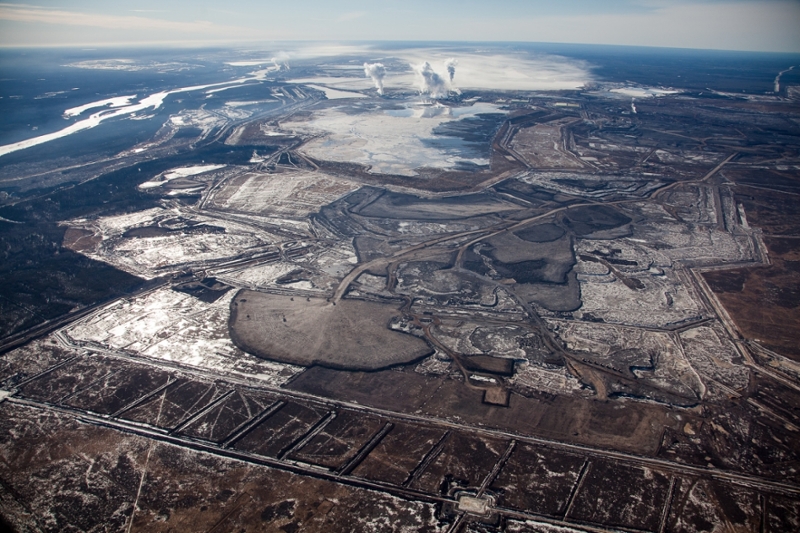The Energy of Demand
Posted by Daniel Hoornweg on May 01, 2017

Bill McKibben, the well-known climate champion, slammed Justin Trudeau last week: “When it comes to the defining issue of our day, climate change, [Justin Trudeau] is a brother to the old orange guy in Washington. Donald Trump is a creep and unpleasant to look at, but at least he’s not a stunning hypocrite when it comes to climate change.”
Strong words. McKibben is incensed over Trudeau’s comments that no country would leave 173bn barrels of oil in the ground. Developing the oil sands reserves in Alberta would take up about 30% of the world’s remaining carbon budget that remains if we hope to keep global warming below the targeted 1.5oC. With just 1% of the world’s population, McKibben pointed out how unfair it is for Canada to take up almost a third of the remaining budget.
Lately in Ontario, a few professors are leveling similar criticisms against nuclear power. Even though nuclear helps the world meet its climate change goals, they argue that the costs and risks are too high and renewables like wind and solar, plus more hydro from Quebec could replace the roughly two-thirds of Ontario’s electricity that comes from nuclear. This is a very tall order, and without major advances in energy storage, this is not yet technically possible.
These schools of thought take issue with the supply of energy, oil sands in one case, nuclear power in the other. However, they are missing half the equation; demand. For example, Bill McKibben knows that if Canada declared a moratorium on oil sands production today, global oil demand would remain the same. All that would happen is that more money would go to buy oil from Saudi Arabia, fracking in the US, and maybe a bit more offshore oil exploration. This is why Prime Minister Trudeau argued that it makes no economic sense for Canada to forgo its own oil and buy it from another country (costs and complexities of extraction and shipping notwithstanding).
This is similar to nuclear energy in Ontario. Already, with the planned closing of Pickering nuclear station the average per capita greenhouse gas emissions of every person in Ontario will go up by about 1 tonne (that’s about an 8% increase). Close all the nuclear stations in Ontario and GHG emissions will go up some 3 to 4 tonnes per person (about 25%) and overall costs will not come down. Yes, wind, solar and more hydro from places like Quebec can help, but unless demand is significantly reduced, the lion’s share of electricity generation would shift to natural gas. It’s ironic that Ontario’s Clean Air Alliance is pushing for closure of nuclear plants (that generate almost no GHG, NOx and particulate emissions) when they know that generation of this electricity will most likely shift to natural gas.
‘Someone needs to be the leader’ critics of oil sands and nuclear energy argue, hoping to wean society off energy, starting with these two types. However, if only half an equation is used, and the economics only include supply, without full environmental and social demands, the results will likely not add up.
Demand is the issue we have much more difficulty talking about. No one wants to hear that we as individuals will have to stop buying pick-up trucks or driving to work every day by ourselves. We use more electricity per person than anywhere else in the world (this includes other large and cold countries). If we addressed the real need to lower demand, we would never cut electricity prices by a quarter. Not only does that pass on costs to future ratepayers, it provides no incentive to do the real work required to address climate change – change our approach to energy consumption.
Nothing determines supply and demand more than price. Germans, for example, pay about twice as much for energy as Canadians. They enjoy roughly the same household income and overall well-being; yet, their total energy use is about half Canada’s.
Everyone wants a cleaner, cheaper supply of energy. Nevertheless, we still need to do the math. The best way to close Ontario’s power plants and to stop digging up oil sands is to reduce energy demand.
Climate change is the biggest challenge facing humanity. We must drastically reduce carbon emissions, and fast (more than half by 2035!). However, as they say, there’s no free lunch. Renewable energy has problems with lithium for the batteries (impacts of mining). And, with climate change, average wind speeds are projected to decline in most of Canada (making wind generation less efficient); hydrogen may generate only water upon combustion, but it is extremely combustible. Of course, nuclear energy has challenges. So too fossil fuels.
Climate change is a by-product of how much energy and materials we use to live our lives. With another 2.5 billion people about to live in cities over the next 35 years, most of whom want to live like us, plus a doubling of global wealth, we need urgently to learn how to live more efficiently. Fighting over supply may make for more compelling headlines, but reality demands more.
Filed under: Sustainability 101